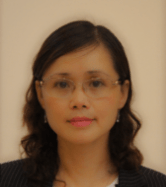As an author of our open access journal International Journal of Climate Change Strategies and Management (IJCCSM) we wanted to hear what Huynh thought about making the research landscape more inclusive and open for all. Here Hyunh discusses more about the opportunities researchers from developing countries have when it comes to publishing open access.
Dr Huynh Thi Lan Huong is an associate professor at Vietnam Institute of Meteorology. Hyunh published her research ‘Climate change vulnerability assessment for Can Tho city by a set of indicators’ via our APC waiver policy for low and middle-income countries.
Read Huynh’s research and find out more about the journal
Hi Huynh, what made you choose to publish you research open access?
In the past I’ve encountered difficulties accessing important articles related to my research, which may limit the literature review at that time. I do not want other researchers to face the same difficulties so I chose to publish my paper open access. Besides, making the scientific information accessible to anyone will advance the research in the climate change area in general.
What are the benefits to publishing your work open access?
By publishing my work open access, the results of my research can be beneficial to more researchers. Moreover, I may also receive more valuable comments from the science community so that I can improve my research. The more scientists and academic institutions that have access to my work also creates more chances for scientific cooperation in the future.
This year’s open access theme is ‘Open for whom? Equity in open knowledge’, do you feel that there is equity in open access?
In my opinion, not all the journals are open access. We have to pay to access the content of many journals. It seems that students and researchers in universities and institutes in developed countries have more opportunities to access scientific papers as their universities/institutes are able to pay for the cost. However, in Vietnam, where I am based, or other developing countries, students and researchers have lower chances to access international scientific papers as the expense is not covered by their institutions. Therefore, publishing papers as open access is very meaningful, especially for those working and studying in developing countries.
Did you face any barriers when publishing your research through an open access route?
I highly appreciate the APC waiver policy for “low” and “middle-income” countries. However, I think it would be great if more financial support can provide to authors in developing countries so that more researchers can share their research results via an open access route.
How do you think we can create a scholarly community that is inclusive and equitable for all?
In my opinion, the major barrier to open access of scientific papers is that corresponding authors have to pay to have their research published. In developed countries, universities and academic institutions can afford to pay for the cost to access papers. If some of that revenue can be shifted to cover part (or entire) of the payment by authors in developing countries for publishing papers via open access route, then the knowledge can be more accessible.
Huynh Thi Lan Huong

By publishing my work open access, the results of my research can be beneficial to more researchers.
